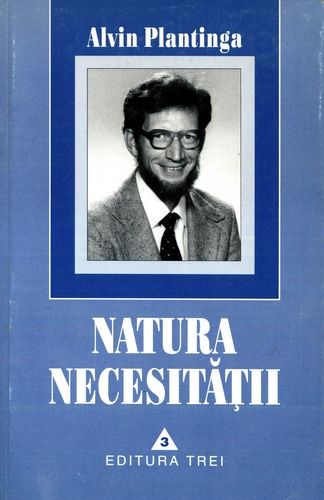



This isn’t really a strike against the book, but is rather simply of note. I’d write more of these out, but the fact of the matter is that the Nature of Necessity has that problem that I believe most books that are so heavy on analytic philosophy have: if one doesn’t read the whole, it is hard to understand any one part. In later chapters (notably VI), Plantinga defends his version of necessity from alternatives, and in the process raises some objections to these alternatives. Plantinga’s descriptions of various states of affairs never fails to entertain, as his sense of humor is present at places throughout the book, while he still maintains his extremely rigorous treatment of the items at hand. These kinds of conclusions are to be found throughout The Nature of Necessity and it is this that makes the book such a good read. But then if both W and W* are actual, S both obtains and does not obtain and this, as they say, is repugnant to the intellect (45).” And a possible world is simply a possible state of affairs that is maximal (45).”īut then, “Equally obviously, at most one obtains for suppose two worlds W and W* are distinct worlds, there will be some state of affairs S such that W includes S and W* precludes S. This discussion is extremely interesting and leads to some conclusions like “A possible world… is a possible state of affairs in the broadly logical sense… a state of affairs S is complete or maximal if for every state of affairs S’, S includes S’ or S precludes S’. The discussion of how we should define worlds, books (which I take to mean a list of propositions that belong to a given world), actuality, possibility, and the like. Chapter IV I found particularly interesting, as Plantinga’s discussion here starts to turn to modal logic. It is quite an interesting section, and one in which I think Plantinga makes a strong case. The first few chapters compose Plantinga’s argument for de re necessity by showing that such things can be shown in de dicto terms. De dicto necessity he defines as “a matter of a proposition’s being necessarily true (v)” while de re necessity is “an object’s having a property essentially or necessarily.” In it, Plantinga tackles “The distinction between necessary and contingent truth (1)…” He distinguishes necessity de re and de dicto necessity. The Nature of Necessity by Alvin Plantinga is quite the philosophy book. This is one I’ve been working through for months. Alright, I managed to finish another book this weekend.


 0 kommentar(er)
0 kommentar(er)
